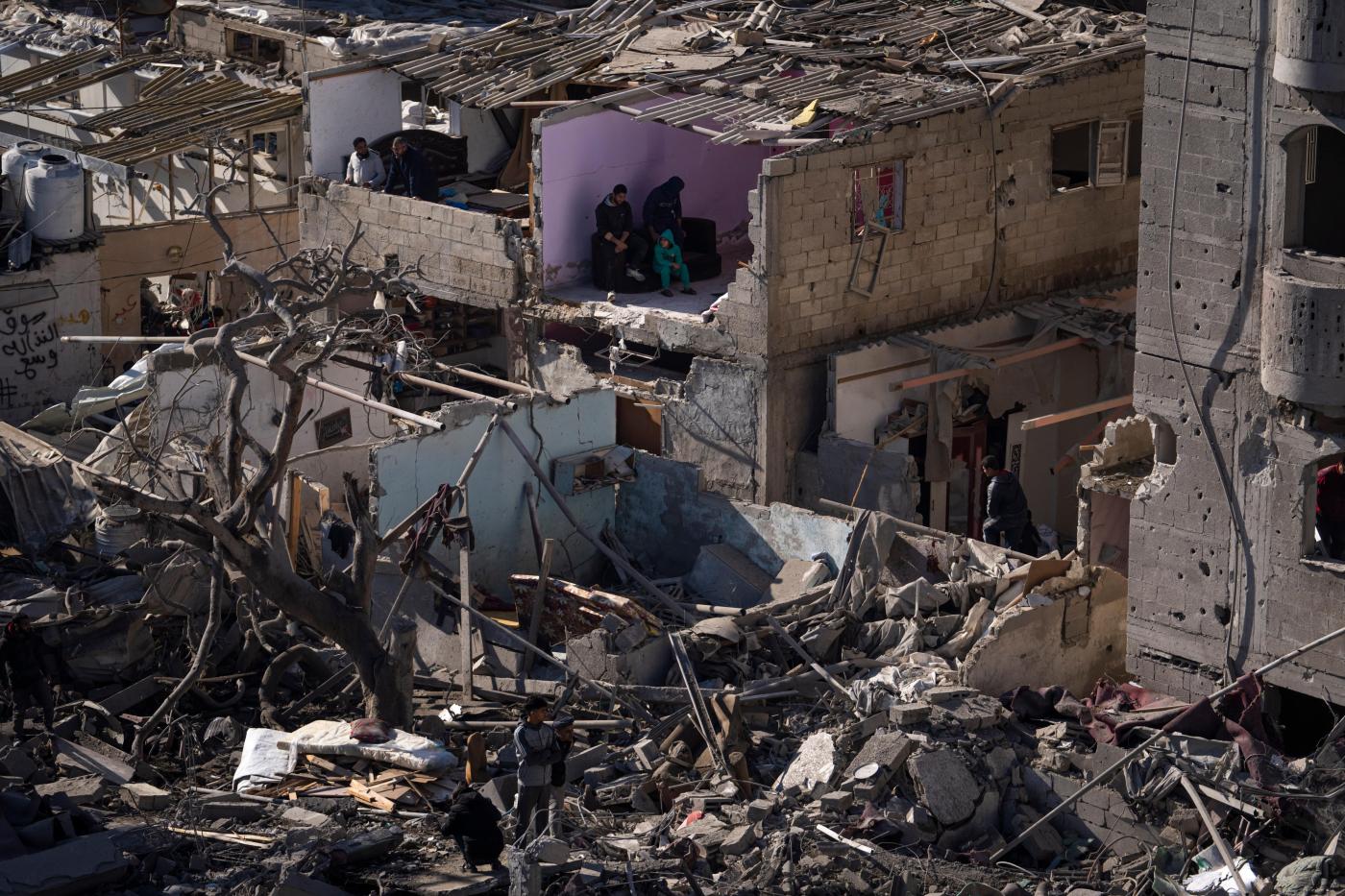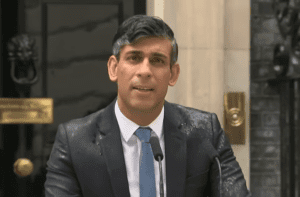
Robin Abcarian: Israel’s Gaza war is horrific, but that doesn’t mean Hamas is innocent of sexual violence
Rape is a well-documented tool of war.
So it’s hard for me to understand the raging controversy over whether Hamas terrorists who killed more than 1,100 Israelis on Oct. 7 also inflicted rape and other sexual crimes on their victims as a “practice.”
If soldiers are depraved enough to tie families together and burn them, to behead corpses and kidnap helpless civilians, why, despite repeated denials from Hamas, would anyone think they would refrain from sexual violence?
There is general consensus that women were raped during the Oct. 7 attacks by Hamas militants, although many have questioned whether the sexualized violence was “systematic,” as an explosive New York Times investigation put it in December, and have accused Israel of “weaponizing” rape allegations to justify its extreme response in Gaza.
A tremendous amount of journalistic energy has been devoted to debunking stories about the rape-related carnage of the Oct. 7 attacks. The Intercept ran a long and, in my view, misguided piece that tried to undercut the New York Times report, mainly by attacking one of the reporters, who had “liked” pro-Israel social media posts.
In February, the United Nations weighed in, finding “reasonable grounds to believe that conflict-related sexual violence occurred during the 7 October attacks in multiple locations across Gaza periphery, including rape and gang rape, in at least three locations.”
Two widely circulated reports of rape and sexualized violence, the U.N. report noted, were misinterpretations by untrained observers. In one case, a first responder said a pregnant woman’s baby had been cut out of her womb. As it turned out, the woman was not pregnant but had been disemboweled.
There is a sentiment in pro-Palestinian quarters that any accounting of Hamas’ sexual atrocities is being used by Israel to gin up outrage to justify the destruction of Gaza and the killing of so many thousands of civilians. And that a wave of stories calling out feminist groups for failing to condemn the sexual crimes of Oct. 7 was orchestrated by the Israeli government.
An open letter signed by more than 1,000 feminists accused Israel of “a cynical attempt to incite public fury and deflect attention from the genocide it is perpetrating.”
Last week in Santa Monica, I had coffee with two women from the Association of Rape Crisis Centers in Israel — Orit Sulitzeanu, the group’s executive director, and Tanya Gilboa, its director of community relations. They were here to visit the pioneering Santa Monica Rape Treatment Center and to meet with the center’s founder, Gail Abarbanel. They wanted to learn about how she has helped change laws in California, including ending the statute of limitations on rape.
Inevitably, our conversation turned to their recent report, “Silent Cry: Sexual Violence Crimes on October 7,” and its conclusion that “sexual abuse was not an isolated incident or sporadic opportunistic case but rather a clear operational strategy.”
Sulitzeanu vehemently rejected the idea that the report was part of an Israeli government plot to justify the destruction of Gaza and the death of thousands of Palestinian civilians.
“We see it as our mission to tell the story, to fight for this narrative, to explain the complexities and to tell the story of the victims who will never speak,” she said. “We don’t represent the country. We are in the human rights business.”
As reports of sexual violence began flooding in, she and her colleagues decided they had a responsibility to compile all the information they were getting: “What happened, and how did it happen and where did it happen?” Their sources were local and international news reports, interviews with first responders and other professionals and, because of their unique position, lots of confidential information.
To be considered a “practice,” Sulitzeanu said, a particular behavior — gang rape, rape in presence of family members, mutilation of sexual organs — had to have been reliably reported taking place at least three different times.
There is a lack of forensic evidence of sexual violence on Oct. 7, but that has been plausibly explained: In the chaos that followed the attacks, the imperative was to identify slain victims and bury them as soon as possible in accordance with Jewish tradition. Rape kits, which generally are effective for only 72 hours after an assault, were never going to be a viable way of collecting evidence.
But there are abundant reports from people who witnessed sexual violence. And while Sulitzeanu said she believes there are dozens of actual rape survivors, she has not made an attempt to find them because to do so would violate her principles and the Murad Code, a global voluntary code of ethics and conduct for those who interview and work with survivors of conflict-related sexual violence. It was developed by Nadia Murad, an Iraqi-born Yazidi human rights activist who was kept as an Islamic State sex slave for three months in 2014, and who won a Nobel Peace Prize in 2018.
“Horrific things happened, people are embarrassed, people don’t want to share,” said Sulitzeanu, who was deluged with requests from reporters around the world to produce victims for interviews.
“Usually, I am very patient and I understand what a journalist needs,” she said. “But sometimes I became very angry. I said to them, ‘Why do you think a survivor should talk to you?’ A survivor who has suffered the most terrible trauma ever has to heal. It will take her weeks, months, years.”
So far, only one survivor of alleged sexual assault, a freed hostage, has stepped forward to tell her story. Amit Soussana, a 40-year-old Israeli lawyer who was held for 55 days, told the New York Times she was beaten and sexually assaulted while in captivity. She was also interviewed by Sheryl Sandberg for the documentary “Screams Before Silence,” which focused on accounts of sexual assault by Hamas.
The focus of the world right now is rightfully on the horrific conditions in Gaza and the suffering of its civilian population and Israel’s human rights abuses. But to minimize the trauma that Hamas inflicted on Oct. 7, including reports of sexual violence, is to forswear one’s very humanity.
As Sulitzeanu told me, “How can I be a human being if I only see one side?”
Robin Abcarian writes a column for the Los Angeles Times.
Related Articles
Mark Gongloff: U.S. wildfire season is now everywhere, all at once
Daniel Bral: No, the Israeli-Palestinian divide is not unbridgeable. Here’s how I know
Jennifer Huddleston: AI and privacy rules meant for Big Tech could hurt small businesses most
Trudy Rubin: Netanyahu moves toward military reoccupation of Gaza with no exit strategy
Bruce Yandle: When Biden and Trump agree, consumers should worry

